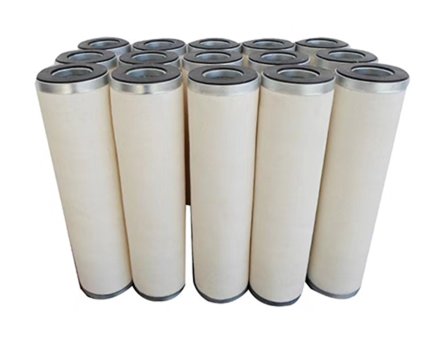 Tel:
+8615930870079
Tel:
+8615930870079
Nov . 16, 2024 21:00 Back to list
pleated dust collection cartridges
The Importance of Pleated Dust Collection Cartridges in Industrial Filtration
In today’s increasingly industrialized world, maintaining air quality within manufacturing facilities is paramount. Dust, fumes, and other airborne particulates not only pose health risks to workers but can also compromise the efficiency of machinery and processes. One effective solution for managing these challenges is through the use of pleated dust collection cartridges.
What are Pleated Dust Collection Cartridges?
Pleated dust collection cartridges are specialized filters designed to capture particulate matter from industrial air streams. Unlike traditional bag filters, these cartridges feature a pleated design that significantly increases the surface area for filtration. This expanded surface area allows for better dust retention and longer service life, leading to decreased maintenance and operational costs.
Typically made from materials such as polyester, cellulose, or synthetic fibers, pleated cartridges are engineered to withstand harsh conditions, including high temperatures and moisture. Their design enables them to function effectively in various environments, from woodworking shops to chemical processing plants.
Benefits of Pleated Dust Collection Cartridges
1. Enhanced Filtration Efficiency The pleated design allows for a larger surface area per unit, which enhances the filter's ability to capture smaller particles. This is crucial in industries where microscopic dust can lead to significant health hazards and equipment degradation.
2. Longer Service Life Due to their construction, pleated cartridges often have a longer operational lifespan compared to conventional filters. The increased capacity to hold dust means that the cartridges do not require replacement as frequently, which can lead to substantial cost savings over time.
3. Reduced Energy Consumption A cleaner filter allows the system to operate more efficiently, reducing the workload on exhaust fans and blowers. This efficiency lowers energy consumption, contributing not just to cost savings but also to a more sustainable operation.
4. Versatility Pleated dust collection cartridges can be utilized in a wide range of applications, making them suitable for diverse industries. Whether it’s capturing wood dust in furniture production or dust generated in metalworking, these cartridges can accommodate a variety of needs.
pleated dust collection cartridges

5. Easier Installation and Maintenance Many pleated cartridges are designed for quick and easy installation, which reduces downtime during maintenance. This feature is particularly beneficial in high-traffic industrial environments where time is of the essence.
Applications of Pleated Dust Collection Cartridges
Pleated dust collection cartridges find application in various sectors, including
- Woodworking In industries that produce wood products, such as furniture and cabinetry, pleated cartridges effectively capture wood dust, reducing the risk of respiratory issues for workers.
- Metalworking Facilities that work with metals generate fine particles that can be harmful if inhaled. Using pleated cartridges ensures that these particles are effectively filtered out of the air.
- Food Processing In food production, maintaining air quality is critical to prevent contamination. Pleated dust collection cartridges help keep the environment clean and safe.
- Pharmaceuticals The pharmaceutical industry requires stringent air quality controls. Pleated filters help control airborne particles that could interfere with product integrity.
Conclusion
Pleated dust collection cartridges play a pivotal role in maintaining a safe and efficient working environment across various industries. Their design offers significant advantages in terms of filtration efficiency, longevity, and ease of use that make them an invaluable asset for any facility concerned with air quality and worker safety. As industries continue to evolve and grow, investing in advanced filtration solutions such as pleated cartridges is not just a regulatory requirement but a commitment to health, safety, and sustainability. In an era where environmental concerns are at the forefront, improved filtration technology is essential for fostering both the well-being of workers and the longevity of industrial operations.
-
Types and Applications of Air Filtration CartridgesNewsJul.28,2025
-
The Role of Gas Turbine FiltersNewsJul.28,2025
-
Mastering Air Filter Cartridge UseNewsJul.28,2025
-
Advanced Turbine Filters for Modern Gas TurbinesNewsJul.28,2025
-
Cellulose Air Filter Cartridge Advantages in Dust FiltrationNewsJul.28,2025
-
Cellulose Filters for Air Particle ReductionNewsJul.28,2025

 Email:
Email:





